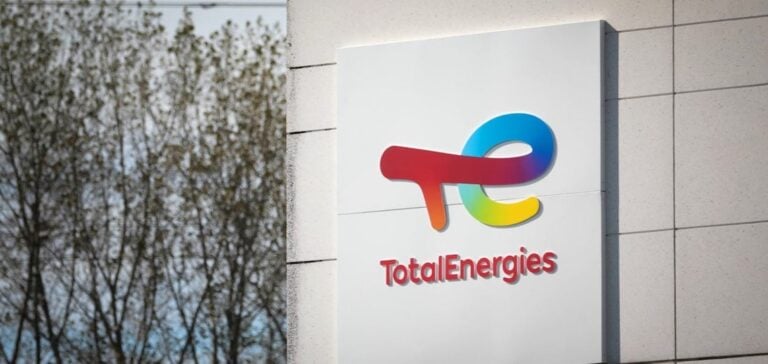TotalEnergies has begun drilling oil wells in Uganda as part of the Tilenga megaproject, decried by environmental and human rights groups, sources told us on Tuesday.
TotalEnergies in action: drilling begins in Uganda for the Tilenga project
“In accordance with the development decision announced on February 1, 2022, drilling of the Tilenga project wells began in July 2023 for production start-up in 2025,” said the French group. In Kampala, on the other hand, the Petroleum Authority of Uganda (PAU) declared that “drilling of development wells” had begun as early as June 28.
More than 400 wells “are expected to be drilled (…) to produce around 190,000 barrels of oil per day at peak production when it begins in 2025”, PAU said in a statement sent to AFP. “Three rigs have been lined up for drilling operations,” said Alex Nyombi, PAU’s Development and Production Manager.
“We currently have one rig operational (…) the second rig is undergoing final tests and checks (…) while the components of the third rig are being assembled and should start operating in October 2023,” he added.
Environmental controversies: TotalEnergies looks at project in the heart of Uganda’s protected reserves
In another statement sent to AFP, PAU’s Director of Legal and Corporate Affairs, Ali Ssekatawa, argued that “the platforms in Uganda” were “designed to minimize the environmental footprint by using sustainable technologies and practices and ensuring responsible resource extraction for future generations”.
Drilling has begun “in the very heart of the Murchison Falls Natural Park, Uganda’s oldest and largest protected natural area”, deplored Friends of the Earth France and Survie, “warning once again of the dangers of this project, which will feed the world’s longest heated oil pipeline”.
“Total continues its greenwashing, trying to convince people that its oil wells will not affect local wildlife with beige-colored drilling towers, to resemble the surrounding savannah grasslands,” they add, noting that a third of the more than 400 wells planned are located in this protected natural area.
Controversial oil extraction in the Albertine Graben: challenges for TotalEnergies
According to the Ugandan newspaper The Independent, quoting a PAU official on Thursday, oil has already been found at a depth of just under 2 km.
“At a time when the ravages of climate change are being felt more than ever, Total is overstepping every conceivable limit by starting oil extraction in one of the world’s most biodiverse areas, the Albertine Graben in Africa’s Great Lakes region,” commented Juliette Renaud of Friends of the Earth France.
And this at a time when “according to the IPCC, no new oil projects should be launched” if the world is to respect the Paris Agreement, she reminded us.
TotalEnergies in Uganda: a $10 billion project under fire
The project is the subject of a $10 billion investment agreement between TotalEnergies, Uganda, Tanzania and the Chinese company CNOOC. It also includes the construction of a 1,443-kilometer pipeline (EACOP) linking the Lake Albert oilfields in western Uganda to the Tanzanian coast on the Indian Ocean.
Opponents denounce the project as being harmful to the region’s ecosystem and its people. In early July, Human Rights Watch called for it to be halted, saying in a report that it had already “devastated the livelihoods of thousands of people”.
For their part, TotalEnergies and its partners assure us that they are “putting environmental and biodiversity issues, as well as the rights of the communities concerned, at the heart of the project”.





















